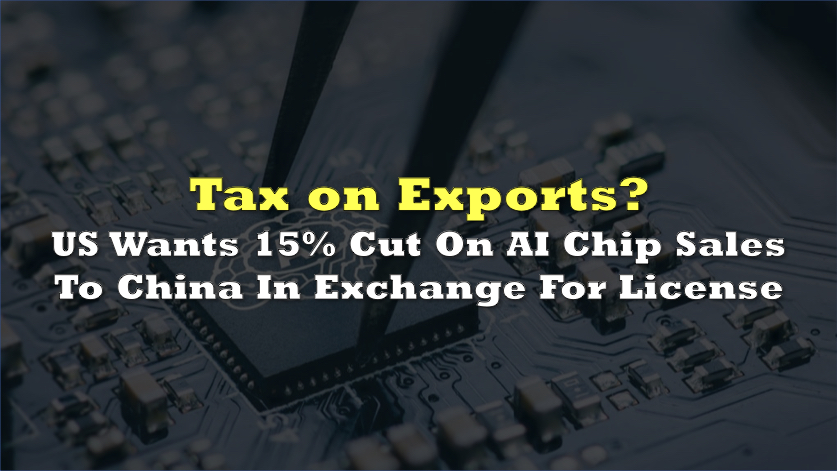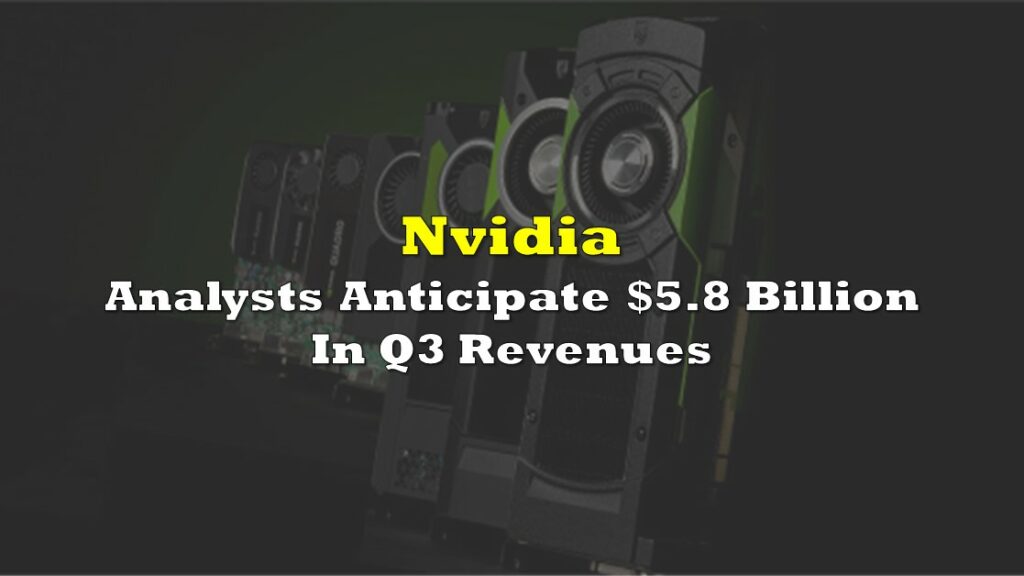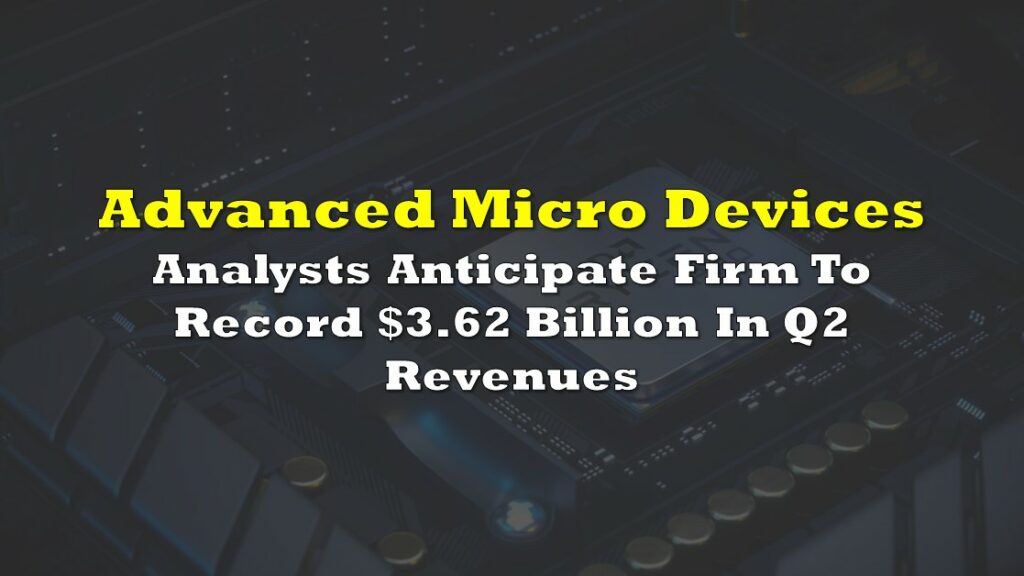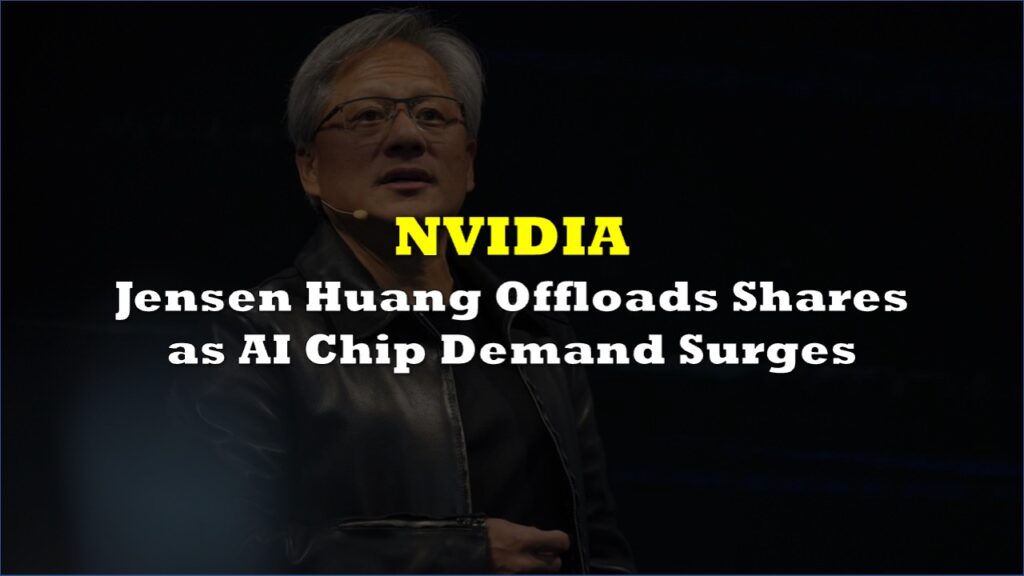Nvidia (NASDAQ: NVDA) and AMD (NASDAQ: AMD) have reportedly agreed to remit 15% of revenue from China AI-chip sales to the US government in exchange for export licenses—an unprecedented revenue-sharing requirement that reshapes the rules of US–China tech trade. The arrangement covers Nvidia’s H20 and comparable AMD parts destined for China.
BREAKING: Nvidia, $NVDA, and AMD, $AMD, have reportedly agreed to give the US government 15% of their revenues from chip sales in China.
— The Kobeissi Letter (@KobeissiLetter) August 10, 2025
This is being described as an "unusual agreement" with Trump in order to obtain export licenses for the chips.
Most people don't realize how massive this announcement truly is.
— The Kobeissi Letter (@KobeissiLetter) August 10, 2025
This covers 15% of REVENUE from China, not PROFIT, for both Nvidia and AMD.
It also means the Trump Administration is now negotiating company-by-company "trade deals."
The trade war just entered a new era. https://t.co/cHn6tiCkq0
The Commerce Department has begun issuing licenses for H20 shipments after months of uncertainty. A US official said the administration believes the sales do not compromise national security, while Nvidia reiterated only that it follows US rules.
However, critics are arguing that the Constitution forbids taxes on exports. Others cast it as a “government-enforced royalty,” warning it normalizes company-by-company trade pacts.
I know nobody cares about laws anymore, but this is like comically unconstitutional. https://t.co/hJd3gExQd7 pic.twitter.com/6DaYXzmYlb
— Joe (@JoePostingg) August 10, 2025
Nvidia and Advanced Micro Devices agreed to pay 15% of their revenues from chip sales to China to the US government as part of a deal with the Trump administration to secure export licenses. This Federal shakedown of private companies is unconstitutional, as are export taxes.
— Peter Schiff (@PeterSchiff) August 10, 2025
The Constitution forbids taxes on exports. https://t.co/tMZWqXJP5x
— Steven Dennis (@StevenTDennis) August 11, 2025
Meanwhile, Mark Cuban praised the move sarcastically as a template: “In the future, don’t call it a tax, call it a Commission for America.”
Hey @AOC , @BernieSanders , @SenSchumer , @SenWarren , every Dem should be thanking @potus for doing what the Dems have dreamed of doing, but have NEVER been able to do, creating a sales tax on 2 of the biggest semi companies in the country ! This opens the door for Sales Tax…
— Mark Cuban (@mcuban) August 11, 2025
Whether the 15% cut stands up in court may hinge on how it’s characterized. The Supreme Court has struck down ad valorem charges on exports that function like taxes, most notably the Harbor Maintenance Tax in United States v. US Shoe in 1998. The key distinction in that and related cases: a lawful “user fee” must closely match a specific government service, but a revenue-based levy generally does not.
For investors, the math is plain even before the lawyers weigh in. A 15% skim off gross sales, not profit, is material to any China volume that returns under the new licensing regime. The FT estimates Washington’s take could run into the billions annually if shipments scale, though long-term demand is not assured.
To put it plainly:
— Otavio (Tavi) Costa (@TaviCosta) August 11, 2025
This is a government-enforced royalty and it’s a retreat from the capitalist framework that historically distinguished the US from other economies, in my view.
If you think this is a one-off event, you're likely underestimating the situation.
There’s… https://t.co/bdy5vYwDtl
Chinese authorities have already urged local firms to avoid Nvidia’s H20 amid security claims, a signal that political pushback could blunt volumes or raise substitution risk.
Information for this story was found via the sources and companies mentioned. The author has no securities or affiliations related to the organizations discussed. Not a recommendation to buy or sell. Always do additional research and consult a professional before purchasing a security. The author holds no licenses.









